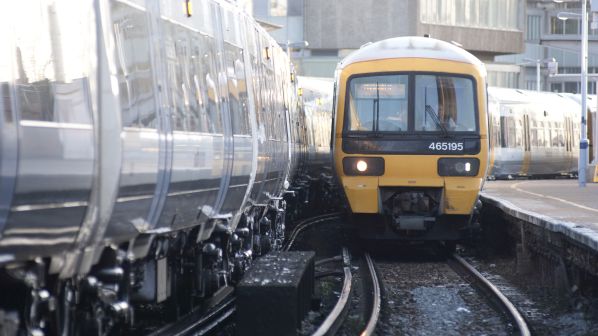BRITISH operator Go-Ahead has launched a number of mental health initiatives to support staff working in the transport industry, ahead of mental health awareness week which runs from May 10-16.
Go-Ahead subsidiary Southeastern is due to launch the British rail industry’s first Mental Health Charter this month, which sets out eight actions that can be taken by organisations to identify mental health hazards, address problems and train supportive managers. Designed by Southeastern mental health lead, Mr Lee Woolcott-Ellis, the charter can be signed by any organisation associated with, or supporting, Britain’s rail industry.
The charter aims to:
- encourage all member workplaces to engage with and embrace the mental health agenda
- support rail companies in preventing and addressing mental ill health, including the effective management of stress in the workplace
- make good practice and information readily and freely available to member organisations, and
- support the industry in taking a proactive approach to end mental health stigma, stimulate conversations and create an open and inclusive culture where all staff know where and when to ask for support.
The number of staff at Southeastern seeking mental health support from firstaiders rose by 146% to 444 in 2020, primarily for anxiety, bereavement, loneliness, relationship problems and a reduction in household finances.
Govia Thameslink Railway (GTR), which operates the Gatwick Express, Thameslink, Southern and Great Northern railways, has launched a number of mental health initiatives, including a network of more than 100 “Wellbeing Champions” and a volunteer group to support staff through Covid-19. The company hosted 1500 support sessions last year through its Employee Assistance Programme and other wellbeing initiatives. In 2020, GTR launched two pilot mental health hubs for customers and the community at Brighton and Eastbourne stations.
80% of Go-Ahead’s workforce is male, although initiatives are in place to encourage more women to consider careers in transport, and men are more likely than women to have lower levels of life satisfaction and are less likely to access mental health support.
“The Covid-19 pandemic has been a particularly challenging period for transport workers who have kept essential services running throughout the year, irrespective of restrictions in other walks of life,” says Ms Sam Facey, Go-Ahead’s Head of Safety. “At Go-Ahead, we want to make sure that everybody within our business is properly supported. There must be no stigma around mental health, and we want to make sure that everybody knows that help is at hand when they need it.”

